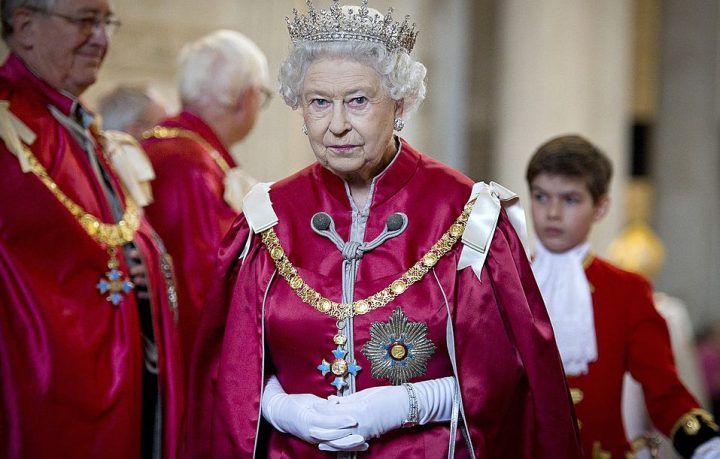MOURNING A MONARCH ANALYSIS
The death of Britain’s Queen Elizabeth definitively ends the age of empire

Buckingham Palace has confirmed that Queen Elizabeth II died peacefully at her Balmoral residence on the afternoon of Thursday, 8 September. For her former subjects across the Commonwealth, what will the reaction be — if any?
With the death of Queen Elizabeth II at the age of 96, the second Elizabethan Age is officially over.
Surreal as it might seem now, for the first nine years of the queen’s reign, she was the Sovereign of South Africa. When she ascended to the throne in 1952, the British Empire still held about 70 colonies abroad. Zimbabwe would gain its independence from the crown only in 1980.
Within the queen’s lifetime, she would see the end of that empire more or less officially arrive in 1997, when the last significant colony, Hong Kong, was transferred back to China.
The queen’s personal feelings on the demise of the British Empire remain unknown, much like her personal feelings about most topics. In Tina Brown’s recent book about the British royal family, The Palace Papers, however, Brown records that Elizabeth’s sister Margaret was more open about her distress at the loss of each successive colony, frequently declaring: “Africa’s quite gone to pot since we left it”.
But the queen never quite left — hanging in, in an increasingly hard-to-define role, as the head of the Commonwealth. At the time of her death, she was still officially the head of state for 16 Commonwealth countries outside the UK, including Australia, New Zealand and Canada. None of those 16 nations, significantly, are in Africa.
Reaction to the queen’s death in the former colonies is difficult to gauge, but is likely to be muted. It is also probable — and, in fact, already evident on social media — that the monarch’s death will be met with expressions of anger from some quarters and renewed reflections on the destructiveness of the British Empire.
Queen Elizabeth II’s royal legacy from the age of steam to the era of the smartphone
That these scars are still deeply felt was never more evident than on Christmas Day last year, when a 20-year-old man called Jaswant Singh Chail attempted to assassinate the queen at Windsor Castle as “revenge” for the 1919 Amritsar massacre, which saw close to 400 unarmed civilians protesting a colonial law shot dead by British troops in India.
Visiting Amritsar in 1997, the queen referred to the massacre as a “distressing example” of “difficult episodes”. She laid a wreath at the massacre site.
The queen was never going to be the right person to express regret for the atrocities of Empire, because the queen almost never expressed regret about anything: Never complain, never explain was the ethos drummed into her by her mother.
But the general failure of the royal family under Elizabeth’s stewardship to candidly grapple with the legacy of colonialism has meant that minor royals doing duty in recent years have been faced with protests they are clearly ill-prepared to deal with. When the queen’s son Prince Edward and his wife, Sophie, visited the Caribbean on an official tour earlier this year, they were met with placards reading “Reparations Now” and “Britain! Your Debt Is Outstanding!”
Visit Daily Maverick’s home page for more news, analysis and investigations
South Africans have traditionally been prepared to extend a warmer welcome to the British royals — to the point, in fact, that the queen’s grandson Harry (no longer Prince) and his wife Meghan reportedly considered South Africa as a place to move to live a life freed from the stifling expectations piled on members of the House of Windsor.
When Harry and Meghan visited South Africa in 2019, in fact — in what would turn out to be one of their last major engagements as working royals — they were met with borderline hysteria, at least by the local media.
But the queen herself had not been to South Africa since the last century, with her final visit paid to Durban in 1999 for the Commonwealth heads of government meeting. In total, she visited South Africa just twice before 1999: in 1947, shortly before everything was to change both for Elizabeth and South Africa, and in 1995, as a show of support for President Nelson Mandela.
She was known to have a special affection for South Africa as a result of that 1947 visit, during which she turned 21. It was from Cape Town that she delivered the famous speech which was broadcast throughout the Commonwealth: “I declare before you all that my whole life, whether it be long or short, shall be devoted to your service, and the service of our great imperial family to which we all belong,” the young Princess Elizabeth vowed.
That imperial family no longer exists, and with the passing of the queen, a related headache awaits. The Commonwealth, as the Guardian pointed out in 2017, was “an invention largely of her making”; the title of “Head of the Commonwealth” is not hereditary, so there is no automatic guarantee that King Charles will inherit it. Neither is there any procedure in place, however, to choose a new Commonwealth head — which will cause many to speculate: is it time to do away with the concept of the bloc altogether?
Allegiance to the Commonwealth, and even the retention of the British monarch as the sovereign head of countries like Canada and Australia, increasingly seem like archaic remnants of an archaic world order. One senses that some rebellions towards these old ties have been held back purely out of respect, and indeed affection, for an elderly woman. Such restraint may not be shown towards her successor.
But it is difficult to say what a post-Queen Elizebeth Commonwealth might look like, for the same reason it is somehow hard to grasp a post-queen reality at all: for all of us under the age of 70, we have never known a world without Elizabeth II on the British throne. DM



















 Become an Insider
Become an Insider
There are many archaic examples that the modern world needs to move away from, like virginity testing for the benefit of the Zulu King. Funding of these global Kings and Queens should be done away with or significantly reduced, and better spent on more “in our face problems” that affect the so called common people.
Charles became Head of the Commonwealth some years ago by agreement of the majority of the member countries.